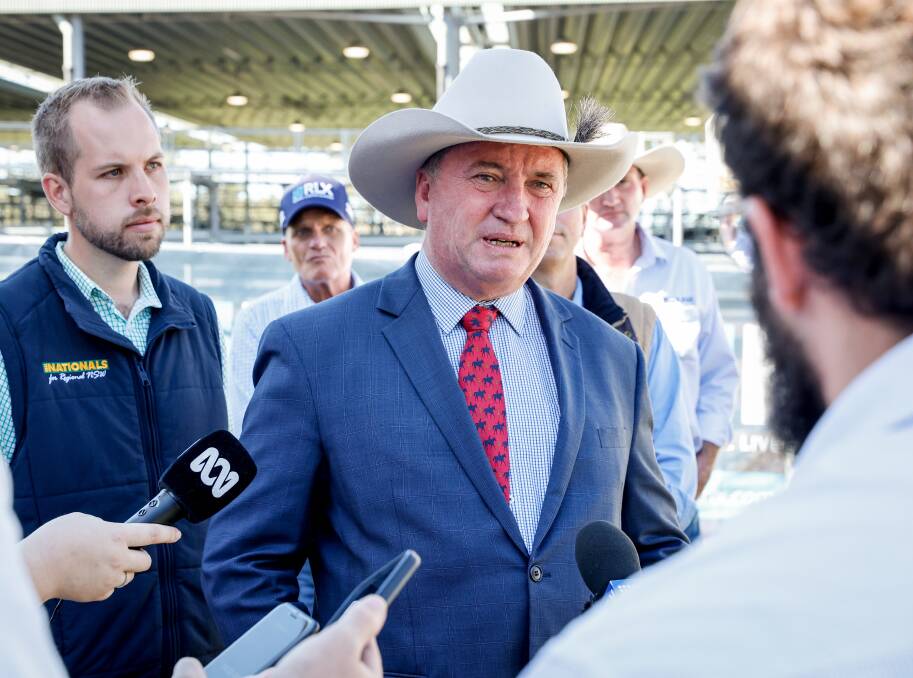
THE Deputy Prime Minister will "insist" the government spends more money on biosecurity to prevent foot and mouth disease from "devastating" the agriculture industry, after an outbreak in Indonesia doubled the risk of an Australian outbreak.
More than 1200 cases of the disease have been confirmed in four provinces of East Java and Indonesia is in the process of preparing an Emergency Declaration. It's believed the outbreak was started when a goat was illegally smuggled into the country from Malaysia.
Department of Agriculture, Water and Environmental officials say the risk of a foot and mouth biosecurity breach has increased from nine per cent 18 month ago, to 18 per cent.
Barnaby Joyce admitted he was talking out of turn by calling for more government biosecurity spending, but the Deputy Prime Minister didn't care given a 12-month FMD outbreak could cost agriculture $16 billion.
"You're never supposed to say things away from the Expenditure Review Committee, but on this one I can say I will insist that we spend money to keep foot and mouth out," Mr Joyce said.
"It would be devastating. Forget about the closure of the live cattle trade, that would pale in significance to foot and mouth."
Agriculture Minister David Littleproud said the government had already offered assistance to Indonesia, and offered pre-emptive assistance to Timor and Papua New Guinea, in an attempt to keep the disease as far away from Australia's borders as possible.
Biosecurity protocols at airports and ports will also be changed, with increased surveillance on direct and indirect flights from Indonesia, Timor and Papua New Guinea.
According to the Department of Agriculture's biosecurity team, human infections have been reported but they are very rare and do not result in serious disease. However, humans can carry the virus in their nose for up to 24 hours and can be a source of infection for animals.
The agriculture industry criticised spending in recent biosecurity funding for not reflecting growing risk of an outbreak and have been calling for a long-term sustainable funding model.
IN OTHER NEWS:
National Farmers' Federation chief executive Tony Mahar said the Indonesia outbreak of FMD - which followed the country's lumpy skin incursion - reinforced the industry's calls.
"Foot and mouth in Indonesia, I have to say, sent a shiver down the spine of agriculture - it is one of our worst fears," Mr Mahar said.
"All it does is in enhance the the need for that long-term sustainable model for biosecurity."
Mr Littleproud said a cost-recovery model, which would see importers pay for the biosecurity services they use, had been delayed as businesses got back on their feet following the pandemic, "but it will come".
The Agriculture Minister also hit back at budget spending criticism and said the independent Inspector-General of Biosecurity had told him the system was adequately resourced.
"If the Inspector-General says I haven't acted, if I get that criticism from the Inspector-General, then I deserve it," Mr Littleproud said.
"We don't need an emotive response that raises fears. We should have concerns, but we need to be sensible and listen to the experts and the science, not the sideline critics."


